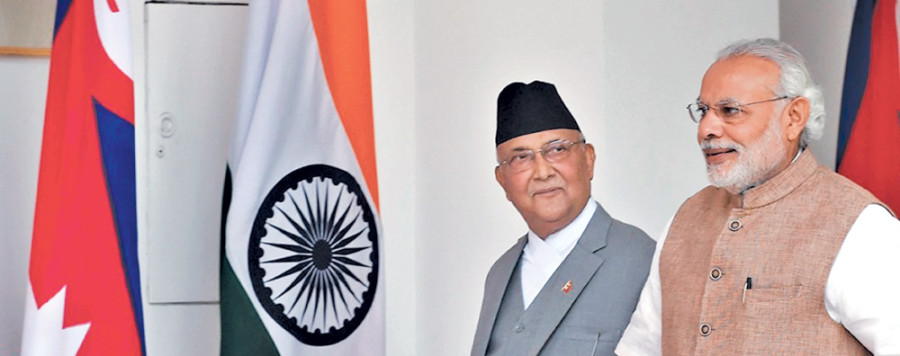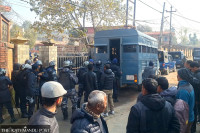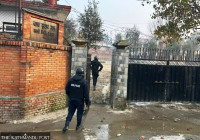Valley
Members see opportunity for new beginning in ties
The first meeting of the Nepal-India Eminent Persons Group starts in Kathmandu on Monday, which the EPG members say is open to reviewing the bilateral relations in the changed context.
Kamal Dev Bhattarai & Anil Giri
The first meeting of the Nepal-India Eminent Persons Group starts in Kathmandu on Monday, which the EPG members say is open to reviewing the bilateral relations in the changed context.
Historically, one of the most contentious issues in the Nepal-India ties has been the 1950 Treaty of Peace and Friendship, which its critics believe boxes Nepal as India’s subservient neighbour.
The two-day meet comes at a time when the political ties between the two neighbours hit a low after New Delhi imposed a four-and-a-half-month undeclared border blockade on Nepal. Subsequently, a number of high-level visits, including by Prime Minister KP Sharma Oli to New Delhi, were exchanged aimed at improving the bilateral ties.
“This is definitely a positive step. This will give us an opportunity to define what kind of bilateral relations we need in the changed context,” said EPG member and CPN-UML parliamentarian Rajan Bhattarai.
The Indian side has said it is ready to discuss any proposal that Nepal presents, including for reviewing bilateral treaties. “We are ready to discuss any proposal that Nepal brings in the meeting in an open and candid way,” said Bhagat Singh Koshiyari, an Indian member in the EPG, who is a senior leader of the ruling Bharatiya Janata Party. Another Indian member, Mahendra P Lama, also said that there would be discussions on Nepal’s concerns.
“The government of India has been taking a consistent position since 2002 that if the Nepali side has any problems with the 1950 treaty it should provide an alternative,” said Nihar R Nayak, associate fellow at the Delhi-based Institute for Defence Studies and Analyses.
Ahead of the meeting, members of the EPG have already held consultations to find ideas and suggestions on the working modality, agendas and a work plan.
The formation of the EPG took over a year since it was first agreed to during the visit of Indian Prime Minister Narendra Modi to Nepal in August 2014. EPG is mandated to review bilateral treaties, agreements, and arrangements in their entirety and propose a new framework to replace or improve on them. They will also suggest matters that need to be updated, amended or replaced.
In 1994, then-prime minister Manmohan Adhikari formally proposed an amendment to the 1950 treaty during his visit to India. After that, it has been a component of joint statements of high-level meetings between the two countries. Then-foreign minister Thapa presented to India a non-paper in August 1998 for a revision to the Peace and Friendship Treaty. Though the non-paper was not published, it stressed the need for separate treaties on security and economic cooperation to serve Nepal’s legitimate interests. Thapa is currently a deputy PM and minister for foreign affairs.
A Nepali member of the EPG said they want to come out of the framework laid out by the 1950 treaty through amendment. “We’ve seen a big political change with the constitution last year. We want to become a fully sovereign country with a new scheme of relations,” said the member requesting anonymity.
Analyst Nayak said India’s priority would be how to mitigate “wrong perceptions of India in Nepal”.
Nepal’s four EPG members are former foreign minister Bhekh Bahadur Thapa, former chief commissioner of the Commission for Investigation of Abuse of Authority Surya Nath Upadhyay, former law minister Nilambar Acharya and UML lawmaker Bhattarai.
The Indian EPG members are lawmaker and senior BJP leader Koshiyari, former vice-chancellor of Sikkim University and current professor at Jawaharlal Nehru University Lama, former Indian ambassador to Nepal Jayant Prasad and Vivekananda International Foundation senior fellow BC Upreti.




 9.12°C Kathmandu
9.12°C Kathmandu












